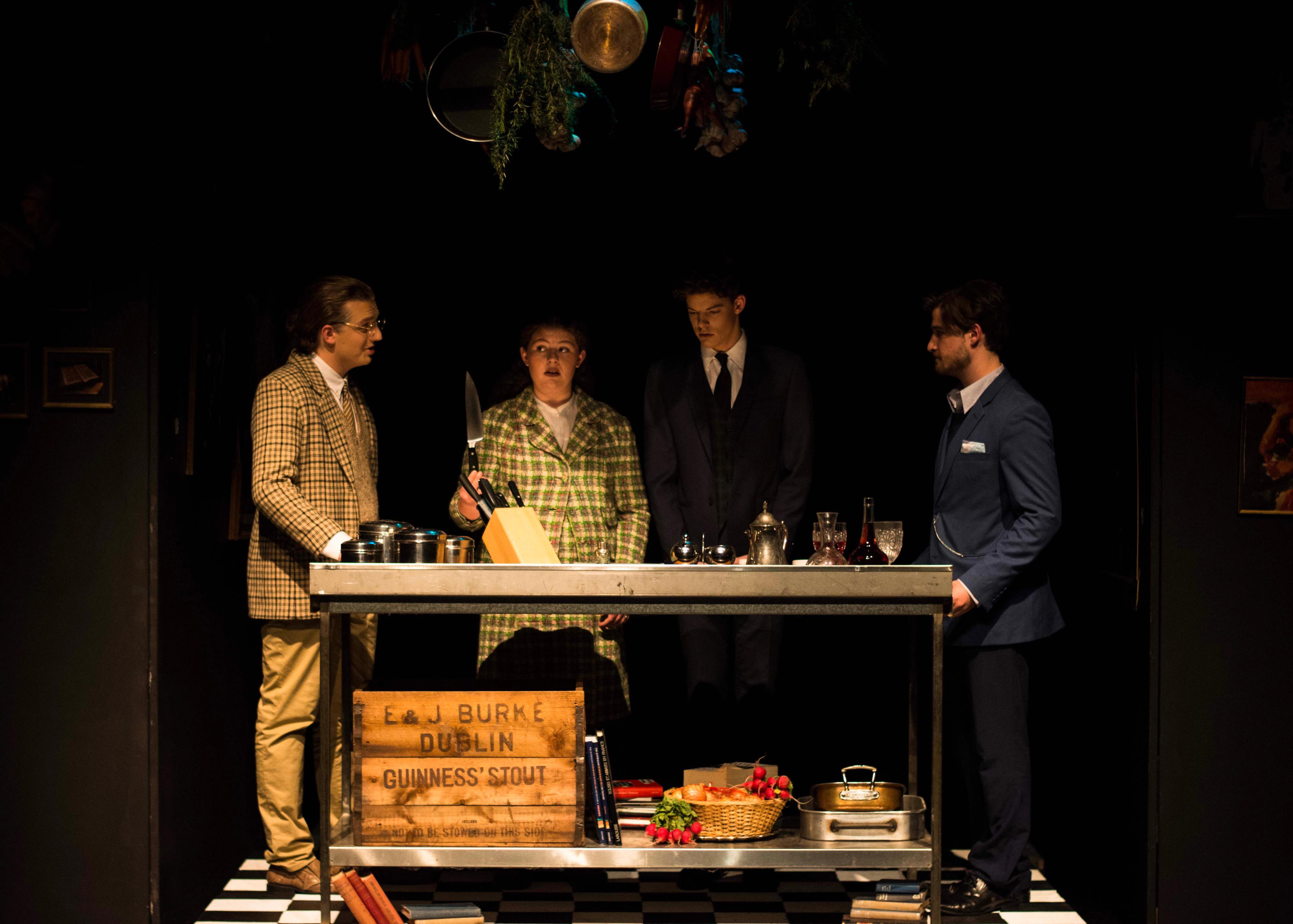Dimity Smyth Is Dead takes all the parts we know and love about the classic, gothic murder mystery, and reworks them into a twisted, sumptuous and emotionally turbulent theatre show. It is hard to fault what was an ultimately resounding success, from the outstanding cast, well-constructed script and resplendent aesthetic. My only critique is the conflicting structural methods of narrative momentum between the first and second acts. This, however, is of limited consequence in light of the otherwise rich and intelligent, theatre love-child of Edgar Allen Poe, Agatha Christie and Victor Hugo.
The set was delightfully moody: the creative uses of lighting and stage space set the dark and dramatic tone from the very start. The befittingly formal script was both quick-witted and insightful to the characters, keeping the audience on their toes at all times. The smatterings of comedic interlude also prevented the show from spiralling into a psychological thriller.
The characters and their development were the real stand out of this production. In a genre that tends to be trope obsessed, the characters’ full-bodied, thoughtful constructions were as dynamic as their portrayals. The performances of Imogen Rabbitte and Molly Holohan were particularly strong- shout out to the latter for a stellar Scottish accent- in what is, at least, a partial testimony to the well-developed script. I would love to have seen more of this character exploration in the second act.
Indeed, the character development was so strong that it facilitated the one major downside of the show. The unlikely friendships and inglorious treachery that so defined the first act were not as strongly continued in the second. Instead, plot and action overtook the narrative in an attempt to simulate a climax, and its non-success is attributable to the pseudo-crescendo moment being too similar to an event that occurred earlier. Perhaps a character-specific climax, in keeping with the first act, would have been more effective than the dissipation of these nuanced relationships into the foray of activity that embodied the second act. Although this was a shortcoming, I don’t ultimately believe that it ruined the production, so outstanding was the script, performance and character nuance.
All drawbacks aside, Writer and Director Xavier Hazard deserves due credit for his intimate understanding of his audience, and knack for timing. Just when things were starting to feel too heavy or static, a sly joke or eruption of drama burst the tension. The inclusion of the John Watson-esque, audience-addressing character of Isla Freeman was an intriguing touch that, again, I would like to have seen explored more.
Dimity Smyth Is Dead keeps the audience guessing the whole way, despite the supposed openness of its resolution. At it’s best, it is less a murder mystery and more a story about the tragic afflictions of the doomed, and their inevitable damnation. The University Dramatic Society has manufactured something that could easily slot between your elegant gothic prose and turn-of-the-century mystery on your theatre bookshelf: a sure-fire classic.
Overall Rating: 4.5/5 stars
Stirling Kain

